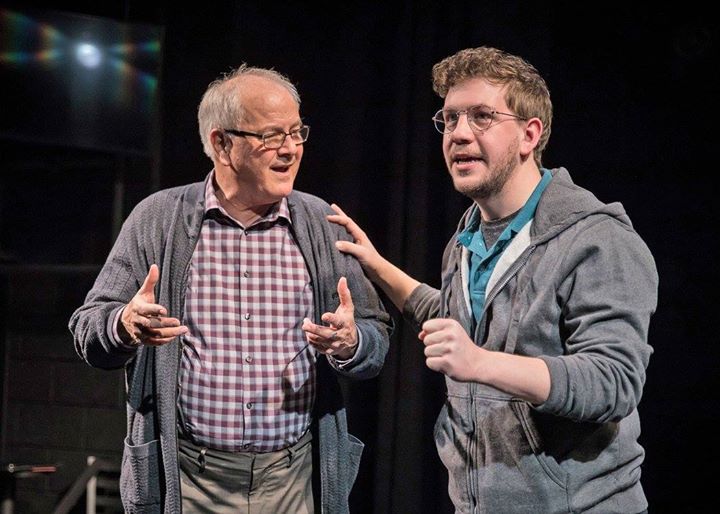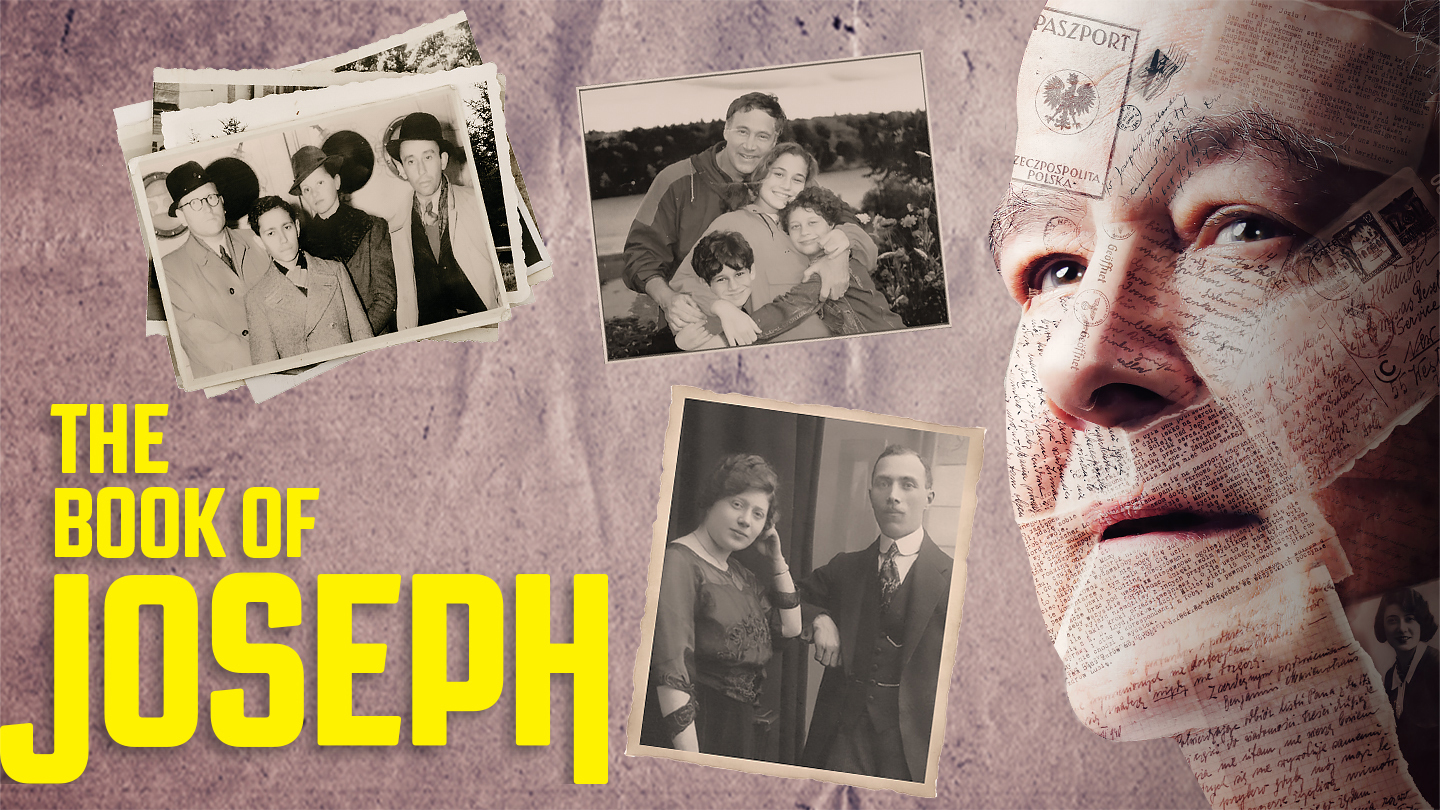THE BOOK OF JOSEPH - Q & A WITH RICHARD HOLLANDER
The Book of Joseph, by Karen Hartman based on the life of Joseph A. Hollander and his family, is directed by Chicago Shakespeare Theater’s Artistic Director Barbara Gaines. The world premiere event currently playing in Chicago through March 5th features a superb ensemble cast led by Sean Fortunato as Joseph Hollander, Francis Guinan as Richard Hollander and Adam Wesley Brown as Craig Hollander. The story centers on the discovery of one of the most complete archives of family correspondence during the Nazi occupation of Poland and is a window into how the family existed in the ghetto in Krakow. It is the journey of one man who attempts to change the course of his family history and reveals the importance of telling your story before it is too late.
Richard Hollander, who discovered the archive of his family letters in a suitcase following the death of his father, published the letters in Every Day Lasts a Year(Cambridge University Press 2007). Mr. Hollander is president of Millbrook Communications, a marketing/advertising firm in Baltimore, Maryland and previously worked as a news reporter for two daily papers and for WBAL-TV in Baltimore.
We asked Mr. Hollander four questions following the opening weekend of the play:
CWET - The discovery of your family letters is a powerful turning point in your life story and must have been an equally powerful moment for you personally to relive in the staged play. It is through these events that we understand the importance of searching for truth and understanding. Tell us how the moment unfolded for you when you realized that a theater audience was now becoming part of, and witness to, your family’s story?
RH - There was a confluence of emotions. The experience was wrenching and exhilarating; humbling and joyous. I felt both vulnerable and proud. Obviously, it is an unimaginable experience to see one’s parent portrayed on stage as a hero. I am rather private and inherently uneasy about exposing myself and the family to the public. That said, there are several powerful themes in The Book of Joseph. Sharing them is a mission rather than a burden. Almost without exception, people who have read Every Day Lasts a Year or seen The Book of Joseph come up to me with their story – metaphorically speaking – their briefcase. That bond with the reader and audience is most gratifying.
CWET – Can you give us an overview of the process and interaction between you, your family and the playwright in putting this piece together?
RH- The creative process is very different given the fact that The Book of Joseph is based on real people, actual events, and the very words of the characters. For want of a better phrase, the play could be called a docu-drama. Playwright Karen Hartman conducted extensive interviews with me; my wife, Ellen; my son, Craig; and Arnold Spitzman and his family. I am sure she researched Krakow, Poland and the Holocaust. The immigration story came out of court records and transcripts of hearings. While writing a play is challenging under any circumstance, this was far more difficult. Karen had to create art from reality.
CWET – Your “role” as storyteller is essential to the arc of the play. What areas in its telling were particularly important to you?
RH - By training (grad school locally at Northwestern) and trade, I am a storyteller. Much of my career was as a print and TV journalist. So, in reality that “role” comes easily to me. I see my character in the play having two distinct roles. One is the personal journey of literally and figuratively opening the briefcase. The second role is leading the audience on its own journey as they relate to what unfolds on stage. I believe it is most important that the storyteller does not make the value judgments for the audience. For example, as a journalist, I am much more comfortable presenting the facts, as in the immigration story, and give each person in the theater his or her freedom to determine whether it relates to contemporary America.
CWET - A key element of The Book of Joseph is understanding the relationship of generations of family members, their stories and how they are told. How you collaborated with your son and found common ground is also a major theme in story. What do you say to people who ask for advice in bringing their family members together to tell their own story?
RH - The obvious answer is don’t wait until one can no longer ask the questions. The Book of Joseph is about family secrets – with a different twist. No one was hiding an ugly family secret. Joseph and Richard were trying to protect each other out of an abundance of love. They created a boundary so that neither would inflict emotional pain on the other. My guess is many, if not most, families erect boundaries. To me, one of the enduring themes is family legacy, which is depicted in the father/son; Richard/Craig relationship. We give our children and grandchildren our memories and our values. Ultimately, Richard and Craig share a legacy.
THE BOOK OF JOSEPH
Chicago Shakespeare Theater
Navy Pier
Now playing through March 5th
INFO|TICKETS
BUY THE BOOK


